![]()
People are trapped in history and history is trapped in them – James Baldwin
History in academics is the study of primary and secondary sources about past events.
In a world that prizes instant gratification and comfort, historians work to understand the patterns that led us to our current society, power structures, and predicaments. Through studying history people learn about the impact of theirs and others actions, better understand themselves, other people and culture at large, and work to share their knowledge in ways that make the world a better, more thoughtful and less destructive place.
The crises of the past have a habit of rearing their heads again and again throughout human society. In the late 1920s and throughout the 1930’s rampant speculation and a high loss of confidence in markets and the economy at large led to a steep drop in spending, consumption, and investment that shocked the world. Prices across the economy fell, and people hoarded money, avoiding markets and banks. It’s hard to estimate how many people lost their jobs, homes, families, and lives as a result of the Great Depression. One major cause of the catastrophe was a severe lack of regulations on banks and financial markets.
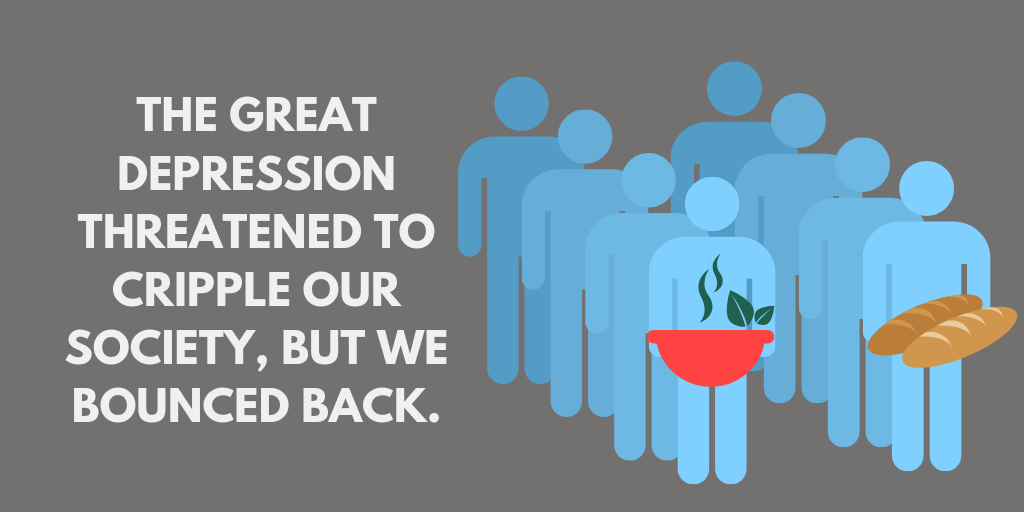
Almost 80 years later the world economy was rocked by a similar crisis, in which limited regulation on corporations, financial markets, banks, and other powerful institutions led to incredible risks being taken throughout the American and global economy. Money was lent that would never be paid back, and in general, both physical and speculative assets were wildly overvalued.
Unlike the Depression, where the hoarding of money led the value of gold to go through the roof and a massive deflation; as a result, the Recession heralded inflation. Neither crisis led to a substantial change in wealth inequality.
In both of these crises massive wealth inequality exacerbated the devastating impacts on people across the world. In both cases, an understanding of history and the dangers involved with wildly unchecked risk by powerful financial institutions and government might have prevented or at least mitigated the crisis. Not since 1928 and 1929 was wealth inequality so pronounced as in 2007 and 2008. During those years of the Great Recession and the Depression half of the unemployed people went without a job for more than six months.
Historians raise awareness. They protect us from ourselves, from the bad decisions we’ve made over the centuries, and at their best try to help humanity find a better way to behave and organize ourselves.
In this guide we’ll explore your options among history degrees, including the various specializations and levels of study you can do, and look at the work we’ve done at Degree Query to help find the best history degree for you. While going through it, you might want to ask yourself the following:
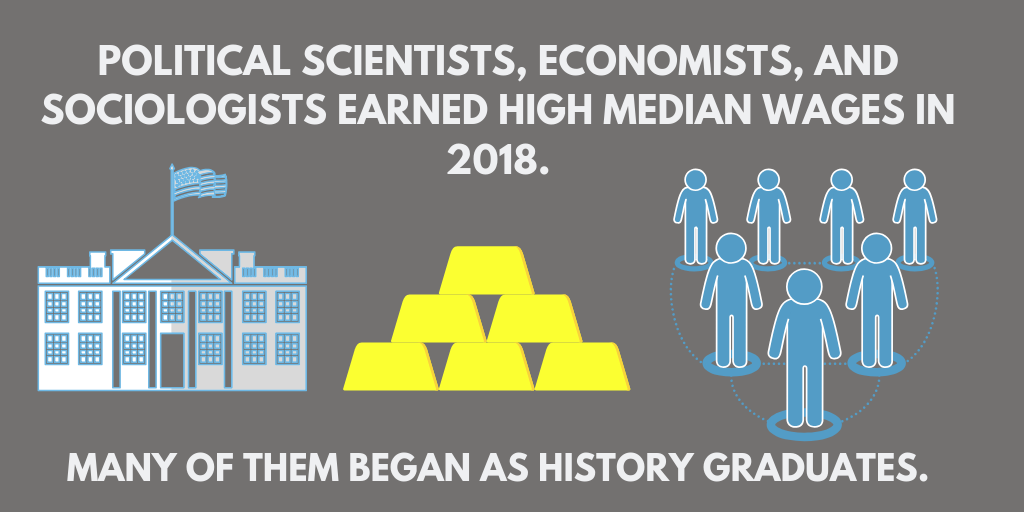
- What are your most important career goals, and how can a history degree help you reach them?
- What degree level have you reached so far in higher education? What position are you hoping to fill, and what degree level do you need to qualify for it?
- You don’t have to know exactly what you would do in history, but you should think about where you might work (teaching, writing, government, or somewhere else).
- How much can you pay in tuition for a history degree you’re looking at, and how much money do you need to borrow to pay for one?
- There are a lot of costs associated with getting your degree. These depend on what school you want to go to, the delivery formats and prices it offers to in and out-of-state students, as well as the scholarships and loans you could qualify for, among many other factors.
- It’s also always best for you to pick a school that you can pay for rather than having to borrow money. However, if you have to borrow money to pay for school (like many people do), try to only select public loans instead of private ones. You should also confine your school search to colleges and universities that are properly accredited, priced, and non-profit over expensive, for-profit institutions.
- How much time do you have for earning a history degree daily, weekly, and overall before you complete it? Different schools convey their degrees through many different formats.
- What’s the best delivery format for you in a history degree program? Would you like to go to school full-time, part-time, online, on-campus, or in a mix of online and on-campus education?
- Where do you want to live and work after earning your history degree? Depending on where you go to school you’ll likely build regional connections to positions, although history is a more transient field than some other disciplines.
- What is your current career and educational experience? How would a particular history program build up your strengths and soften your weaknesses?
- What are the available specializations or focuses in history programs you’re considering? How would a specialization or focus of a history degree benefit your education and help you reach your career goals?
These are just some of the things you should consider while searching for a degree. If you can, write down other questions, considerations, and parameters you’re looking for in your education to enhance these questions and make them more reflective of your wants and needs.
Before we dive into the specific history degree levels and specializations, let’s look at what you’ll get out of these programs:
History Degrees Build Up Your:
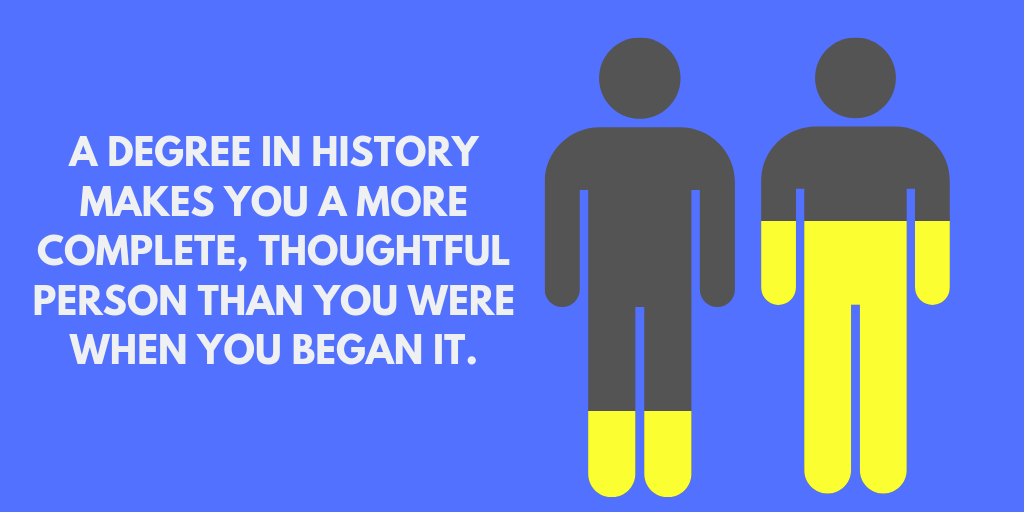
- Analytical Skills: Through examining conflicting details of the past you’ll learn how to sift through accurate and false information, something that pays dividends throughout your life.
- Problem-Solving Skills: What could have happened differently if other decisions were considered? What would you have done differently if you were in a position of power or influence at a pivotal point in history? You’ll explore these questions and much more to learn how informed decision-making can shape the world.
- Research Abilities and Experience: You’ll do extensive research with a variety of primary and secondary sources in many different mediums and learn to distill what you find in a digestible way. On that note:
- Verbal and Written Communication Skills: Studying history involves significant explanation, exploration, and arguing. You’ll learn how to make your findings understood and convincing to a range of people with vastly different experiences.
- Ability to Work Alone: Historians are often solitary people, and do a large amount of their research, writing and instruction preparation by themselves. These degree programs will teach you to manage your time and effort without overbearing supervision.
- Ability to Change Your Mind: You’ll realize the value of recalibrating your opinion when presented with new information. History is littered with people who refused to change course until it was too late, and you’ll learn from their mistakes.
- Appreciation of Others: You’ll combat your siloed experiences by engaging with people from all over the world and throughout time to gain a more thorough, compassionate perspective that will help you throughout your life.
There are many other aptitudes and skills that history degrees build up. With the help of your peers, friends, family, and professors, you’ll gain a much better understanding of the world currently inhabit and how it developed. Here at Degree Query we also want to help you in your search:
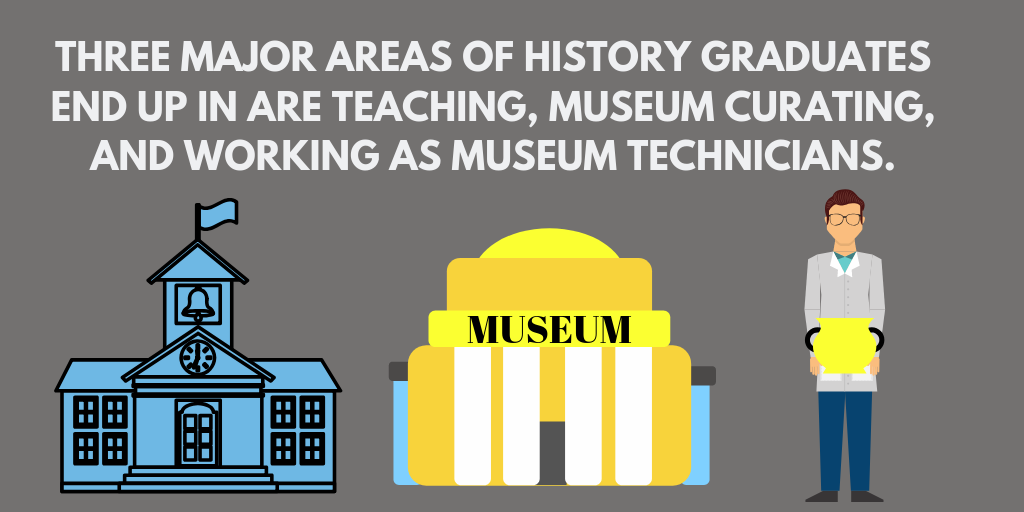
How Can We Help You Find the Best History Degree for You?
Here at Degree Query we’ve put our backs into helping you find the best history degree for you (or one of the many other disciplines we’ve written about). We’ve ranked jobs, schools, and degree options. We’ve answered a host of common questions about higher education degrees, reported on environments and trends in higher education. We’ve also built tools like our interactive compare careers matrix that was created to help you figure out what the best educational path is for you. Here’s some of what we’ve written that looks at history and adjacent and the schools that offer them:
Rankings
- Top 50 Degrees for the Future
- Top 50 Degrees For Changing The World
- 50 Best Online Master’s Degrees 2019
- 25 Best Online Bachelor’s Degrees for 2019
- 50 Best Online Degrees for 2019
- Easiest Online Master’s Degrees
Frequently Asked Questions
- What Undergraduate Degree Do I Need to Earn a Master’s Degree in Library Science?
- What are the best degrees to get?
- What Can I Do with an American Studies Degree?
- What Can I Do With An Anthropology Degree?
- What Can I Do With an English Degree?
- What Can I Do With a Creative Writing Degree?
- What Degree Do I Need to Be a Curator?
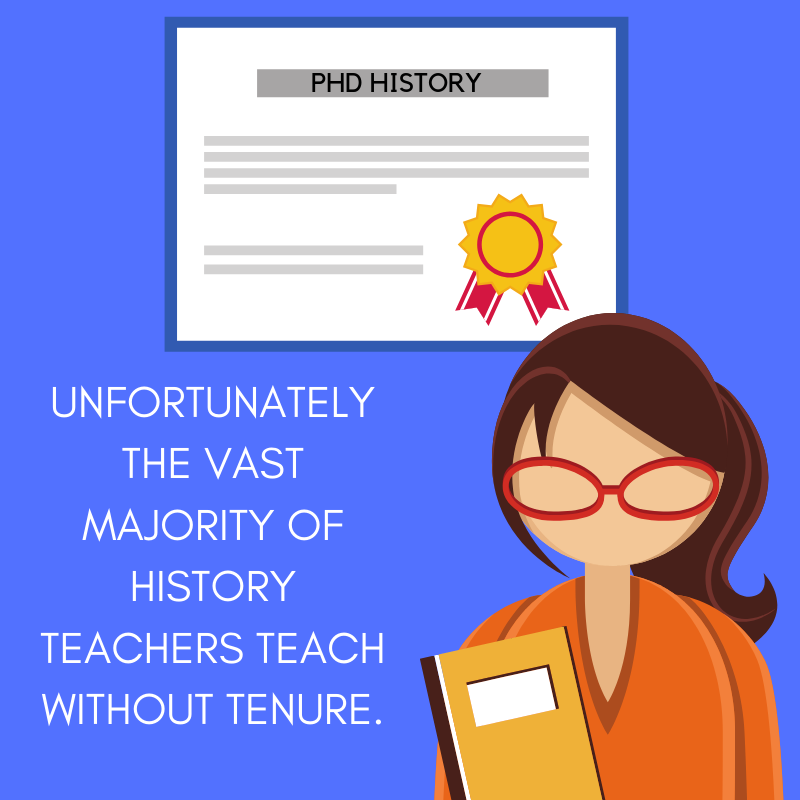
To explore your options throughout education please check out our Compare Careers Matrix. We’ve also done a lot more writing on degrees related to a History education like Economics, Education and English studies. If you find any schools from our content that seem like a good fit for you, you can always email their support staff directly to request more information about the programs you’re interested in, find out what their application requirements are and how you can help your chances of being accepted into them.
Now let’s look at the different levels of history degrees and what they’ll get you ready to do:
What are the Different Levels of History Degrees?
History degrees generally come in four forms: Associates, Bachelors, Masters, and Doctoral or Ph.D. degrees:
Associates in History
These programs generally take two years to complete and cover both American history and global historical civilizations. You’ll explore economic trends, political systems, cultural and religious influences, and much more to get a better grasp of how past events developed. You’ll learn how to do basic research with primary and secondary sources, and report on your findings. Associates in History are often offered by a community or junior college that allow students to save money and time on tuition and residency, earn pertinent credits towards further degrees and often have partnerships that encourage transfer into four-year programs to complete Bachelor degrees in History.
Bachelors in History
In these four-year programs you’ll delve deeply into the early and middle ages through modern societies. You’ll study American, Asian, Middle Eastern, African, and European cultures and events. You’ll likely explore colonialism, warfare, eras like The Renaissance, treatment of minorities throughout history, and much more. These programs can often be combined with a teacher education program for those interested in teaching history at the elementary or secondary levels. Graduates can go on to teach, write, pursue jobs at think tanks, museums, or go on to further in their education at the graduate level.
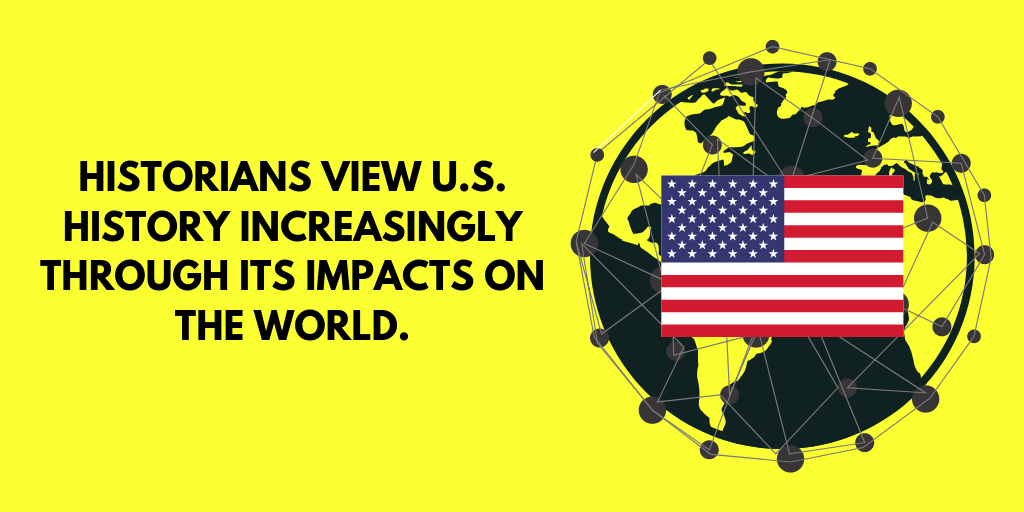
Masters in History
These programs take one and a half to two years to complete. Graduates will be ready to work as academics, researchers, or in museums or other historical organizations. You’ll explore African, Asian, American, Middle Eastern, and European history in extreme detail, along with areas like environmental, public, or military history. You’ll contextualize events, do extensive research, measure data empirically, and write about your findings for academics and the public. You’ll likely write and defend a thesis based on original research, or complete some other culminating experience before graduating. You might take a foreign language to enhance your ability to study and write about different cultures, and you’ll likely have a specialization or concentration based on your interests in the field.
Doctorates in History
In doctoral history programs you’ll spend three to five years in a comprehensive, theoretical and research-based program that will prepare you to teach, research, work at museums and other historical organizations, or write at the highest levels on topics you’ll build expertise in throughout the program and its culminating thesis (plus that thesis’ defense). Courses will cover languages, literature, politics, art, historical events, and much more. You might specialize in areas like U.S. History, Middle Eastern History, Ancient History, among many others. Some programs may require you to build fluency in another language as part of your studies.
Now that we’ve explored the different levels of History degrees let’s get into the different specializations and focuses that are available to you in these programs.
What are the Available History Degree Specializations?
History is extremely broad, and there are generalists and specialists in the field who are happily working in many versatile positions today. If you’re interested, you can refine your education within history by specializing in one of the following areas (among many other options):
Economic History
In these degrees you’ll study how global, national and local economic systems developed, what they impact, who controls and regulates them, and much more. You might explore the economic history of a specific country more deeply than others. You’ll compare different economic systems like feudalism, capitalism, socialism, communism, and how they interact with each other on a global stage. You might become an expert in a specific era of economic history, like the Industrial Revolution.
Ancient History
Here you’ll go deep into the past to understand long lost civilizations and bring their experiences, wisdom, and traditions into the present day. You might carefully study a specific culture, country, or empiric society from the past, and find ways to do original research and writing on cultures and civilizations that no longer exist. This is fascinating, hard work, and you’ll be fighting to get your hands and eyes on source material all over the world.
Cultural, Continental, or National Specific History
You might choose Asian, American, European, African, or Middle Eastern history, or a specific country in those continents, and plunge into it in these programs. You might also choose a more particular aspect of history related to pop culture, infrastructure development, specific time periods, etc. In these programs learning a foreign language can be instrumental to broadening the source material you can consume directly.
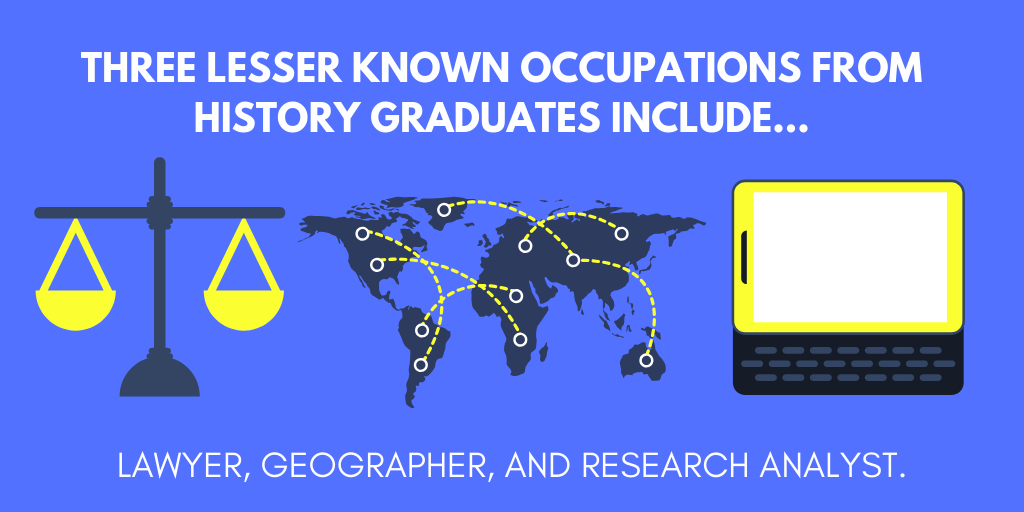
Social History
These specializations take a macro approach to history, looking at movements and social trends throughout the past. You’ll look at how people moved behind ideas, instead of just exploring leaders and famous events. You might explore primary source material from regular people, look at how specific populations were impacted or took charge during social movements, look at different labor classes or even focus on something particular like child labor in the early 20th century. These programs are known for examining history from the ground up.
Military History
Here you’ll look at wars, tactics, and try to make sense of why they happen, and how the victors achieved their successes. You’ll examine weapons, technology, decision-making, and much more. You’ll deeply understand military theory and how it’s changed throughout the past. You might also explore and engage with reenactments that bring back famous battles and wars to our time period through elaborate recreation.
Political History
In these programs you’ll look at leadership, political events, movements, and ideas, the constitutions and organizations of governments, and what led into all of it. You’ll take a top-down approach to history, and be prepared to work in government, academia, for a think tank, or other political organization.
Public History
This is the area for you if you want to work in historical societies, museums, to preserve landmarks and ancient artifacts, oral history, and other related fields. You’ll often find yourself out of traditional academic settings, but still educating the public on its past in unique ways. Preservation and exposure to hidden wonders is the name of the game here.
Intellectual History
Philosophy and history meet here in a specialization where thinkers, their ideas, and the ripples of their thoughts echo throughout the past, present, and future. You’ll focus more on tangible ideas than theoretical philosophy, like the history of books and reading, among other foundational ideas and concepts that molded society and culture. You’ll explore political, cultural, and social contexts and how they digested diverse ideas throughout the world.
There are many other areas of history that you can study or specialize in, but this is a good representation of top options. Now before we wrap up the guide let’s explore some of what you can expect to make after earning a degree in history.
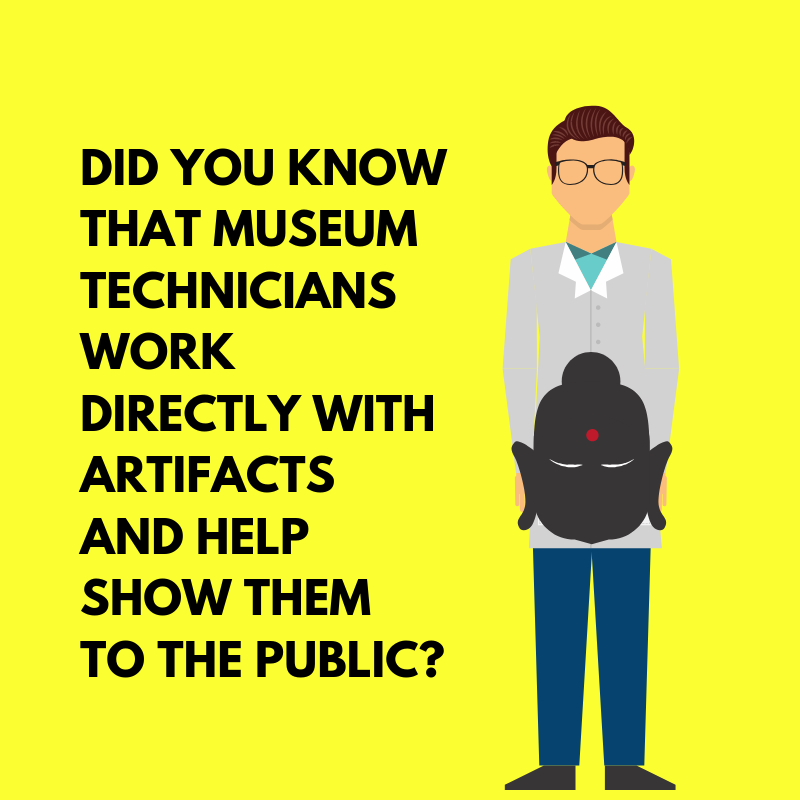
History Degrees in Conclusion
On behalf of everyone at Degree Query we’re hopeful you’ve found this guide useful, illuminating, and inspiring. Go forth and find the best history degree for you using the tools and parameters we’ve shared. Now let’s talk business.
The U.S. Bureau of Labor Statistics writes that historians earned a median pay of $61,140 annually in 2018. There were 3,300 of these roles in 2016, which was expected to grow by 6% between 2016-26, netting 200 new jobs. The standard entry-level education for these roles was a Master’s degree. Keep in mind that people who graduate with history degrees work in many different positions throughout the economy, and can be found writing, teaching, and curating in a number of different environments.
In May 2018 the lowest 10% of people in these positions made less than $29,270, and the top 10% were paid over $110,670. some of the areas associated with higher pay in this field included the federal government, local governments, state governments, and professional, technical, and science services.
Remember that if you find a program or school through our content that you think is a good match for you, it will be instrumental in your search and your chances for being accepted if you reach out directly to their support staff. You can ask about application process details, how to shore up your qualifications to better your chances of acceptance, and much more.
Best of luck!
